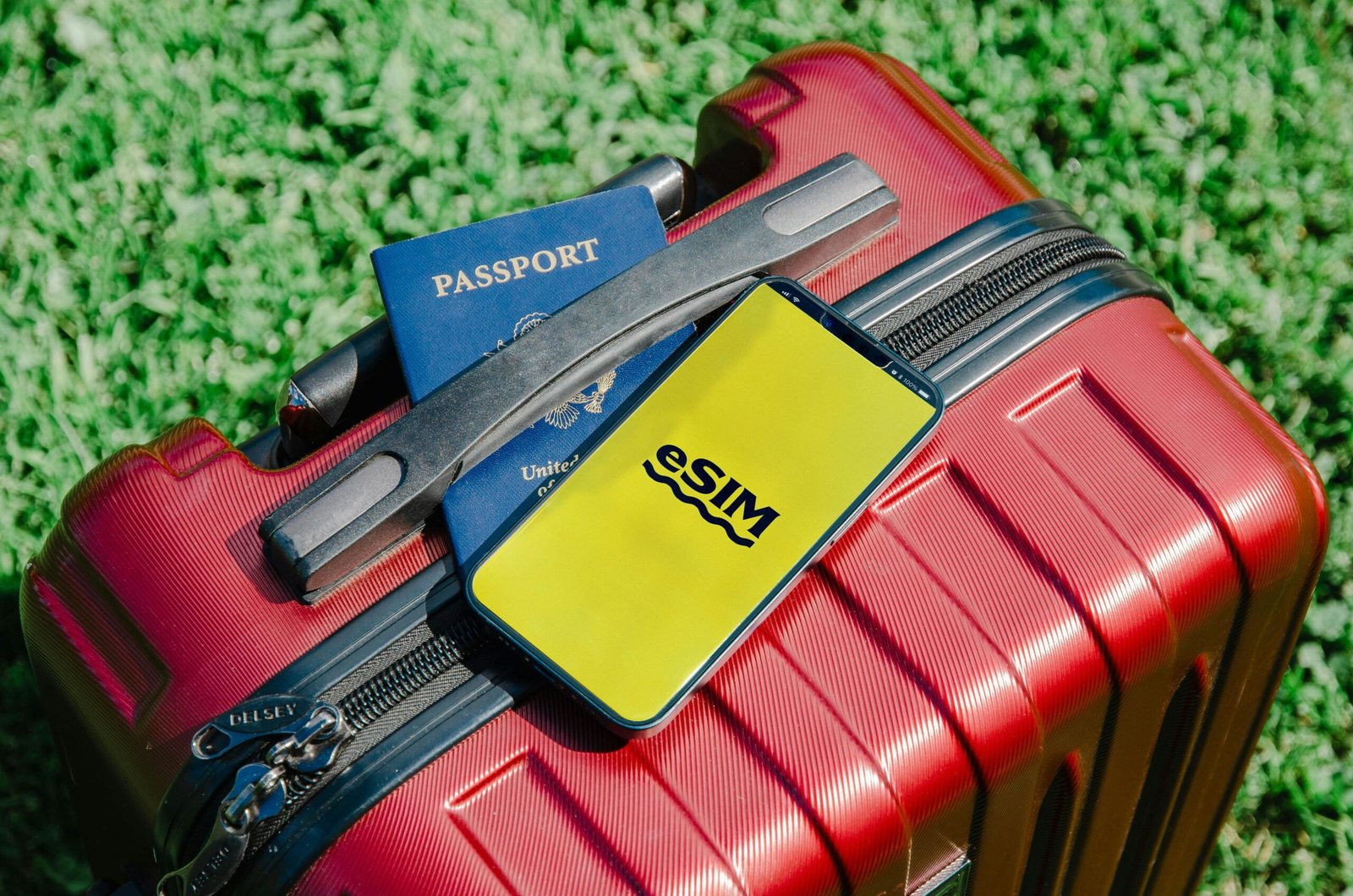How to Travel Europe on a Budget

Want to travel around Europe without breaking the bank? We’ve got you covered.
Hey there traveler! Always dreamed of traveling around Europe but worried about the costs? No worries! Traveling Europe on a budget is definitely possible. With a bit of planning and some savvy tips, you can have an incredible, potentially life-changing adventure all without breaking the bank. So, pack your bags, grab your travel journal, and let’s dive into how to travel Europe on a budget.
Table of Contents
Plan Ahead
Research and Budgeting
The first step in any budget travel plan is to do some thorough research. Figure out which countries and cities you want to travel to and create an outline itinerary. This will help you estimate the costs and identify where you can save money.
- Create a budget: List all potential expenses, including flights, accommodation, food, transportation, and activities.
- Look for deals: Be on the lookout for flight deals, hotel discounts, and special offers on activities. Websites like Skyscanner, Google Flights, and Booking.com are your best friends.
- Travel offseason: Europe’s peak tourist season is summer (June to August). Traveling during the shoulder seasons (spring and fall) can save you a lot of money on flights and accommodation. You can enjoy popular activities without the huge crowd.
Choose Budget-Friendly Destinations
When it comes to traveling Europe on a budget, cost-wise not all European countries are created equal. Eastern Europe is typically more affordable than Western Europe.
- Eastern Europe: Countries like Poland, Hungary, Romania, and Bulgaria offer rich history, beautiful architecture, and delicious cuisine at a fraction of the cost of Western Europe.
- Avoid tourist traps: Major cities like Paris, London, and Rome are amazing but can be costly. Consider visiting smaller towns and cities that offer a more authentic experience at a much lower cost.
Getting There
Finding Cheap Flights
Flight costs can be one of the biggest expenses of traveling, but with a bit of know-how, you can get a great deal.
- Book in advance: Generally, the earlier you book, the cheaper the flights. Generally, try booking at least two months in advance if possible.
- Be flexible: If you can be flexible with your dates, you can take advantage of the cheapest flights available. Google Flights has a great feature to explore prices with flexible dates.
- Use budget airlines: Airlines like Ryanair, EasyJet, and Wizz Air offer low-cost flights across Europe. Just be aware of extra fees for luggage and other services.
Alternative Transportation
While in Europe, there are several budget-friendly transportation options.
- Trains: Europe’s extensive rail network is convenient and usually very affordable, especially with a Eurail Pass. Use sites such as Trainline to find and compare prices for different routes.
- Buses: Companies like FlixBus offer cheap bus rides between major cities.
- Carpooling: Services like BlaBlaCar connect drivers with empty seats to passengers going the same way, often for a small fee.

Accommodation on a Budget
Hostels
Hostels are historically the go-to choice for budget travelers. In hostels, you’ll find dormitory-style rooms and shared facilities.
- Benefits: Hostels are not only cheap but also a great way to meet other travelers. Many offer free breakfast, organized activities, and kitchen facilities.
- Booking: Use websites like Hostelworld and Hostelbookers to find and book hostels.
Budget Hotels and Guesthouses
Want a bit more privacy? Budget hotels and guesthouses can be a good option.
- Search engines: Check websites like Booking.com and Agoda to find a wide range of budget accommodations.
- Look for deals: Quite a few budget hotels will offer discounts for longer stays or last-minute bookings.
Alternative Accommodation
For a unique and usually cheaper experience, consider alternative accommodation options.
- Airbnb: Renting a room or apartment can be more affordable than a hotel, especially if you’re traveling with others.
- Couchsurfing: Stay with locals for free through Couchsurfing. It’s a great way to save money and get insider tips on the area.
- Camping: If you love the outdoors, camping can be an incredibly cheap way to travel. Europe has many campsites, and wild camping is allowed in some countries.
Eating on a Budget
Cook Your Own Meals
One of the best ways to save money on food is to cook your own meals.
- Hostels and Airbnb: Many hostels and Airbnb rentals have kitchen facilities. Shop at local markets and grocery stores to save money.
- Picnics: Europe has plenty of beautiful parks and scenic spots perfect for a picnic. Pack a lunch and enjoy your meal with a view.
Eat Like a Local
When you do eat out, avoid touristy restaurants, that are often overpriced, and eat like a local.
- Street food: Many European cities have vibrant street food scenes offering delicious and affordable eats.
- Local markets: Markets are not only great for buying fresh produce but also often have food stalls with affordable meals.
- Lunch specials: Many restaurants will offer cheaper lunch menus, so make lunch your main meal of the day.
Free Breakfast
If your accommodation offers it, take advantage of free breakfast. Fill up in the morning, and you’ll need less food throughout the day.

Exploring on a Budget
Free Attractions
Europe is full of incredible attractions that won’t cost you a dime.
- Museums and galleries: Many museums and galleries have free admission days or times. Research in advance and plan your visit accordingly.
- Walking tours: Free walking tours are available in many cities. They’re a fantastic way to see the sights and learn about the history and culture from a local guide.
- Parks and outdoor spaces: Europe is home to beautiful parks, gardens, and nature reserves. Spend a day exploring these green spaces for free.
Discount Passes
Many European cities offer discount passes that can save you money on attractions and transportation.
- City passes: Passes like the Paris Pass, Berlin WelcomeCard, and the Barcelona Card offer free or discounted entry to attractions, museums, and public transport.
- Student and youth discounts: If you’re a student or under a certain age, you can often get discounts on attractions, transportation, and accommodation. Always carry your student ID or youth card.
Off the Beaten Path
Exploring lesser-known destinations can be both cheaper and a more rewarding experience.
- Small towns and villages: Escape the crowds and experience the charm of Europe’s smaller towns and villages.
- Nature and outdoor activities: Hiking, cycling, and exploring national parks can be inexpensive and unforgettable.
Staying Connected
SIM Cards and Data Plans
Staying connected is important, especially for navigation and finding information on the go.
- eSIM cards: Buying an eSIM is both affordable and convenient. With an eSIM, you don’t need a physical SIM card to connect to a network since the eSIM is installed on your phone. Keep in mind that your phone needs to be unlocked in order to use one. For more information check out Saily’s guide on eSIMs. Here are a few of our eSIM recommendations:
- Saily has reliable and affordable eSIMs that provide coverage by the country instead of Europe as a whole. Country-specific eSIMs are generally cheaper than region-specific ones.
- Holiday Zen eSIM or Orange eSIM Europefrom Holiday eSIM are popular region-specific eSIMs for staying connected easily throughout Europe as a whole.
- AirHub is another popular and reliable brand that provides both country and region level eSIMs.
- Local SIM cards: Buying a local SIM card can be cheaper than international roaming. Look for prepaid options with data packages. Many shops sell local SIM cards in cities or at the airport.
- Free Wi-Fi: Many cafes, restaurants, and public places offer free Wi-Fi. Use these spots to connect without using your data. However, be wary of connecting to many different public WiFi without a VPN as this can be risky when accessing sensitive information like online banking or personal emails. It’s highly recommended to use a VPN like NordVPN while traveling. Although this is an expense, believe us, it’s a much better expense than having your information stolen.
Offline Maps
Download offline maps on apps like Google Maps or Maps.me. This way, you can navigate without using data.

Money-Saving Tips
Currency Exchange
Try avoiding exchanging money at airports or tourist areas where rates are often worse.
- ATMs: Withdrawing money from ATMs usually offers better exchange rates. Just be aware of any fees your bank may charge.
- Currency exchange apps: Use apps like Revolut or TransferWise for better exchange rates and lower fees.
Avoid Unnecessary Fees
Be mindful of hidden fees that can add up quickly.
- Bank fees: Check with your bank about international fees. Consider getting a travel-friendly card with no foreign transaction fees. A popular option is the Chase Sapphire Preferred or Reserve card which has no international fees and good travel protection benefits. Use our referral for bonus points upon being approved.
- Public transport: Always validate your tickets and avoid fines for not having a valid ticket.
Travel Insurance
While it’s an extra expense, travel insurance can save you a lot of money in case of emergencies. It also offers the added benefit of peace of mind knowing that you’re covered in case of an accident or flight issue. Get a policy from reliable and comprehensive providers such as EKTA.
- Compare plans: Use websites like TravelInsurance or World Nomads to compare and find the best travel insurance plan that fits your needs.
Safety Tips
Stay Vigilant
While Europe is generally safe, it’s important to stay vigilant and protect your belongings.
- Pickpockets: Be aware of pickpockets, especially in crowded areas and tourist hotspots. Use a money belt or anti-theft bag to keep your valuables safe.
- Scams: Research common scams in the areas you’re visiting and know how to avoid them.
Follow common travel precautions. Check out the U.S. State Department’s guide on best practices for travel safety for comprehensive information.
Emergency Numbers
Familiarize yourself with the local emergency numbers. The general emergency number in Europe is 112.
Making the Most of Your Trip
Embrace Local Culture
One of the best parts of traveling is experiencing new cultures. Be open-minded and embrace local customs and traditions.
- Learn basic phrases: Learning a few basic phrases in the local language, such as hello, please, and thank you, can go a long way and make your interactions more enjoyable.
- Be respectful: Always be respectful of local customs and traditions, even if they’re different than your own.
Take Your Time
Try not to cram too much into your trip. Take your time to fully experience and immerse yourself at each destination.
- Slow travel: Spend more time in each place and really immerse yourself in it. This can also save you money on transportation.
- Enjoy the journey: Sometimes the best experiences come from the unexpected moments. Try to have an open mind and be open to new experiences.
Ready to Travel Europe?
It’s entirely possible and incredibly rewarding to travel Europe on a budget. With some solid planning, flexibility, and a bit of know-how, you can explore this beautiful continent without breaking the bank. So, what are you waiting for? Start planning your European adventure today!
Ready to embark on your budget-friendly European adventure and need some tips on packing and what to bring? Give our essential packing guide and essential travel gear posts a read. Happy and safe travels everyone! 🌍
FAQ
1. What are the best countries to visit in Europe on a budget?
Eastern European countries like Poland, Hungary, Romania, and Bulgaria are known for being budget-friendly. Portugal and Greece are also affordable options in Western Europe.
2. How can I find cheap flights to Europe?
Use flight comparison websites like Skyscanner and Google Flights, book in advance, and be flexible with your travel dates. Consider flying with budget airlines like Ryanair, EasyJet, and Wizz Air.
3. Are hostels safe to stay in?
Yes, hostels are generally safe, especially those with good reviews. Use common sense, lock up your valuables, and choose hostels with security measures like lockers and 24-hour reception.
4. How can I save money on food while traveling in Europe?
Cook your own meals when possible, eat street food, and look for local markets. Take advantage of free breakfasts and opt for lunch specials at restaurants.
5. Is it necessary to have travel insurance?
While not mandatory, travel insurance is highly recommended. It can save you a lot of money in case of emergencies like medical issues, trip cancellations, or lost luggage.
6. How can I stay connected while traveling in Europe?
Consider buying a local SIM card or using an eSIM with data. Many places offer free Wi-Fi, so take advantage of that to save on data costs. Remember that it’s recommended to use a VPN when accessing public Wi-Fi.
7. What should I pack for a budget trip to Europe?
Pack light and bring versatile clothing. Don’t forget essentials like a reusable water bottle, a travel adapter, and a money belt or anti-theft bag for your valuables.
That’s it, folks! All that’s left is to get out there and travel Europe on a budget! Your adventure is waiting to happen. So, lace up your walking shoes, grab your backpack, and get ready to make unforgettable memories. As always, happy and safe travels!



